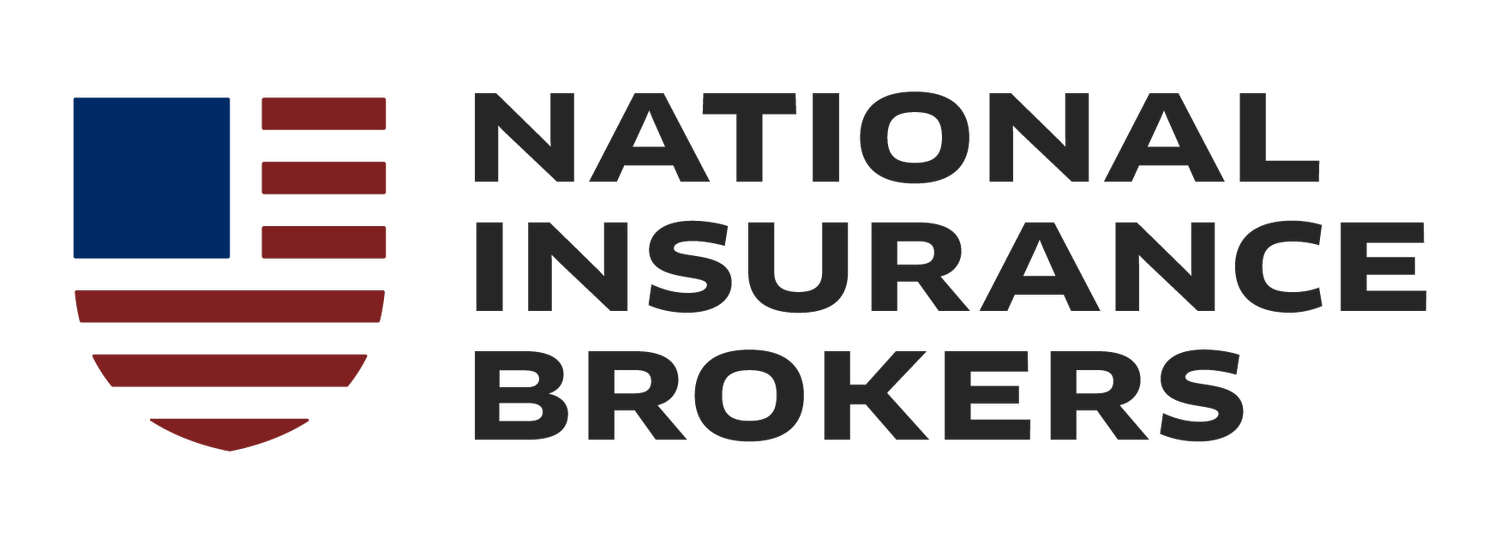Tailoring Commercial Insurance Policies to Meet Industry-Specific Needs
Commercial insurance is crucial in safeguarding businesses from various risks and uncertainties. With its comprehensive coverage, including commercial or personal property insurance, professional liability insurance, and general liability insurance, businesses can protect their assets, finances, and reputation.
At National Insurance Brokers, we understand the importance of customizing insurance policies to meet the distinct requirements of different industries. Our expertise lies in tailoring insurance solutions catering to businesses operating in various sectors, from small business owners to large corporations.
Let’s explore commercial insurance definitions, the various types of commercial insurance and their relevance to different industries. We will discuss industry-specific insurance needs and highlight key insurance coverage areas.
Understanding Industry-Specific Insurance
Industry-specific insurance refers to policies tailored to meet the unique needs and risks of specific sectors. Commercial property insurance, including commercial property insurance and property insurance, takes into account the industry-specific operations, activities, and potential liabilities.
Different industries have distinct risks and challenges, necessitating specialized insurance coverage. By recognizing and addressing these specific risks, businesses can adequately protect themselves.
For example, small business owners may require professional liability insurance, general liability insurance, and employment practices liability insurance to safeguard against claims arising from their business activities.
Understanding the specific risks associated with an industry enables insurance companies to offer targeted coverage that meets those needs. Whether it's commercial auto insurance for transportation companies, business interruption insurance for retailers, or management liability insurance for financial institutions, industry-specific coverage plays a vital role in mitigating risks.
Furthermore, small businesses face unique challenges, and insurance tailored to their needs is crucial. Small business owners may seek business insurance coverage to protect against property damage, liability claims, and business interruption. Additionally, they might consider commercial general liability insurance, business owner's policy, and workers' compensation policy to cover various aspects of their operations.
In conclusion, industry-specific insurance provides customized coverage that addresses the unique risks faced by different sectors. By offering policies such as commercial property insurance, professional liability insurance, and business interruption insurance, insurers can support businesses in managing their specific risks and ensuring their long-term success.
Challenges of Generic Insurance Policies
While generic or one-size-fits-all insurance policies may provide convenience, they often fall short in addressing the specific risks and needs of different industries.
These policies lack the necessary customization to account for industry-specific liabilities, resulting in potential coverage gaps. They may include irrelevant coverage while overlooking crucial aspects required to mitigate industry-specific risks. Additionally, overlapping coverage can lead to unnecessary costs and complexities.
Generic policies can leave businesses underinsured for industry-specific risks, resulting in higher premiums for unnecessary coverage. For example, healthcare providers may face gaps in coverage for medical malpractice claims, regulatory compliance issues, or data breaches.
Manufacturers may find generic policies insufficient in covering product liability claims arising from manufacturing defects or faulty products, exposing them to significant financial risks.
Similarly, technology companies may not receive adequate coverage for cyber risks such as data breaches, intellectual property theft, or system failures. Additionally, generic policies may fail to address environmental risks associated with energy production.
When confronted with industry-specific risks, generic policies may not provide sufficient protection. For instance, a restaurant experiencing a foodborne illness outbreak may discover that its generic professional liability insurance policy does not adequately cover product liability claims specific to the food industry, leaving the business susceptible to substantial financial losses.
Benefits of Tailoring Insurance Policies
One of the significant benefits of tailoring insurance policies, such as professional liability insurance and commercial property insurance, to meet industry-specific needs is the ability to obtain comprehensive coverage that addresses unique risks.
Businesses, including small business owners, can ensure that their insurance policies, such as business interruption insurance or general liability insurance, include provisions and endorsements specifically designed to protect against the risks in their industry.
Tailored insurance policies, whether it's employment practices liability insurance or business insurance coverage, go hand in hand with enhanced risk management and loss prevention strategies.
Insurance providers, such as an insurance company or insurance agency, who understand the intricacies of a specific industry can offer valuable insights and guidance on risk mitigation measures that can help small business owners reduce their exposure to potential risks. This includes property damage liability, bodily injury, and other liability insurance aspects.
Incorporating industry-specific risk management strategies into business operations helps small business owners proactively minimize the likelihood and impact of losses arising from unexpected events, including natural disasters or other risks. It makes them more attractive to insurers and potentially leads to more favorable premiums and terms, whether it's a commercial general liability or business interruption coverage.
Another advantage of tailoring insurance policies, like commercial auto insurance or cyber insurance, is eliminating unnecessary insurance coverage, which can save businesses costs.
A generic insurance policy often includes insurance coverage that may not be relevant or applicable to a specific industry or business type, such as commercial property or small businesses. This leads to higher premiums without commensurate benefits.
Customizing insurance policies ensures small business owners only pay for the insurance coverage they need, such as workers' compensation policy or business property insurance. It optimizes insurance costs while maintaining comprehensive protection against industry-specific risks, including errors and omissions, medical expenses, or business income losses.
Tailored insurance policies can facilitate a smoother claims process and faster recovery in the event of a loss, such as business interruption or property damage. Insurance providers, such as insurance agent or insurance company, with expertise in a particular industry, understand the unique aspects of the business and the potential risks involved.
As a result, they can streamline the claims process, ensuring that small business owners receive prompt and accurate support when filing a claim for insurance policies, including business owner's policy or commercial insurance.
Industry-Specific Insurance Solutions
Different industries, such as manufacturing companies, consulting firms, legal practices, accounting firms, technology companies, and small business owners, have unique insurance needs. These industries require specialized coverage to protect against their industry-specific risks adequately.
Manufacturing companies face various risks associated with their products, including defects, recalls, and product-related injuries. To address these risks, manufacturers often rely on product liability insurance, which covers claims arising from bodily injury or property damage caused by a product. This insurance helps manufacturers mitigate potential financial losses and legal liabilities resulting from product-related incidents.
Service-based industries like consulting, legal, and accounting firms may benefit from management liability insurance and professional liability insurance (errors and omissions insurance). Technology companies and small business owners need cyber insurance to mitigate data breaches and unauthorized access risks.
Understanding liability insurance, property insurance policy, bodily injury, business insurance terms, disability insurance, homeowners insurance, liability coverage, insurance agency, and legal liability is essential for businesses. Seeking guidance from insurance agencies can help businesses find suitable coverage tailored to their needs.
Conclusion
Tailoring commercial insurance policies to meet industry-specific needs offers businesses and industries significant advantages. It ensures comprehensive coverage, enhances risk management strategies, provides cost-effectiveness, and facilitates a smoother claims process.
In the ever-evolving business landscape, it is crucial for businesses to prioritize industry-specific insurance solutions. Recognizing the limitations of generic policies helps businesses safeguard their operations, assets, and reputation.
Contact us today for expert guidance on commercial insurance definitions and get tailored insurance solutions to meet your industry-specific needs.

